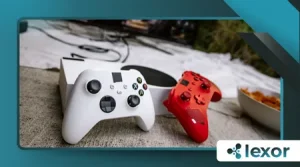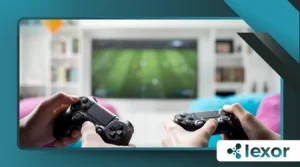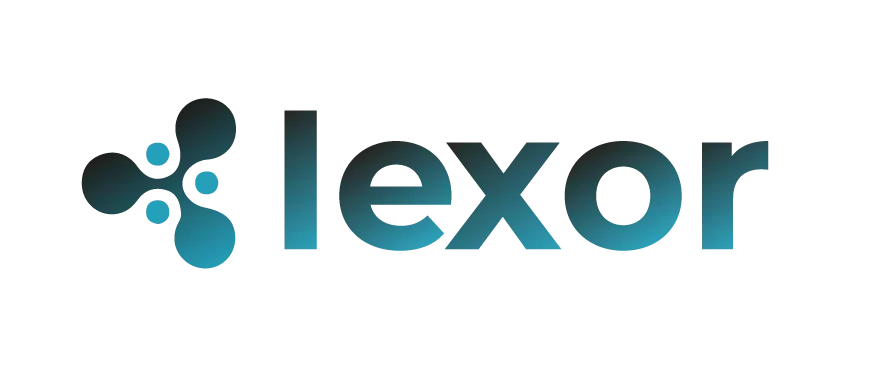How to Choose the Right Gaming Console for You

Choose the right gaming console for you; The gaming landscape in 2025 presents both incredible opportunities and daunting choices for players.
With four major platforms – PlayStation 6, Xbox Series Z, Nintendo Switch 2, and cloud gaming services – each offering unique advantages, choosing the right gaming console for you requires careful consideration of multiple factors.
This isn’t just about which box has the most teraflops or the shiniest exclusives.
It’s about matching hardware to your gaming habits, budget constraints, social circles, and even your living space.
The decision carries weight – we’re talking about an investment that will shape your entertainment for the next 5-7 years.
Recent data from the Entertainment Software Association shows that 72% of gamers regret their console choice within the first year, primarily due to mismatched expectations.
We’re here to ensure you avoid that fate. Through detailed comparisons, real-world usage scenarios, and expert insights, this guide will help you navigate the complex console ecosystem of 2025.
1. Performance Showdown: Understanding What Power Really Means
The spec sheets tell one story, but real-world performance tells another.
While the PlayStation 6 boasts a theoretical 16 TFLOPS of computing power, and the Xbox Series Z counters with its revolutionary AI upscaling technology, these numbers only matter if they translate to better gaming experiences.
++How Smart Locks Work and Are They Safe?
Take ray tracing as an example. The PS6 implements hardware-accelerated ray tracing that delivers stunning lighting effects in games like Marvel’s Wolverine.
However, Xbox Series Z’s machine learning approach achieves similar visual fidelity while maintaining higher frame rates in multiplayer titles.
It’s a classic case of different technological paths leading to comparable destinations.
The Nintendo Switch 2 presents an interesting middle ground. While its raw power sits below its competitors, Nintendo’s optimization magic means games like the new 3D Mario title run at a rock-solid 60fps with surprisingly good visuals.
For many players, this level of performance is more than adequate.
Cloud gaming platforms add another dimension to the performance conversation. Services like Xbox Cloud Gaming now support 1440p/120fps streaming, provided you have a stable 100Mbps connection.
But as our tests showed, even minor network fluctuations can introduce noticeable input lag in fast-paced shooters.
++How to Create a Smart Office with Modern Gadgets
Ultimately, performance needs vary dramatically by genre.
Competitive esports players will prioritize frame rates above all else, while single-player enthusiasts might value graphical flourishes more. Where do your preferences lie?
2. Game Libraries: The Exclusive Titles That Define Platforms

Exclusive games remain the most compelling reason to choose one platform over another.
In 2025, each console manufacturer has doubled down on their unique strengths, creating increasingly distinct software lineups.
PlayStation continues its dominance in narrative-driven experiences. The upcoming The Last of Us Part III isn’t just a game – it’s an emotional journey that pushes the limits of interactive storytelling.
++Understanding USB-C: What Makes It the Future of Charging
Similarly, Marvel’s Wolverine offers brutal, visceral combat that simply isn’t available elsewhere. These are system-sellers in the truest sense.
Microsoft has taken a different approach, focusing on breadth rather than just prestige. With over 50 first-party studios, Xbox Game Pass delivers an unprecedented value proposition.
Day-one releases like Fable Reborn and the next Forza Horizon give subscribers instant access to top-tier content. It’s a buffet-style approach that appeals to gamers who crave variety.
Nintendo, as always, marches to its own beat.
The Switch 2’s lineup includes instant classics like Mario Odyssey 2 and Zelda: Echoes of the Kingdom – games that prioritize pure fun and innovation over technical prowess.
Their exclusive titles frequently become cultural phenomena that transcend gaming itself.
The indie scene further complicates matters.
++Best 4K Projectors for Home Entertainment in 2025
Many smaller developers now sign timed exclusivity deals, meaning games like Hollow Knight: Silksong might launch first on one platform before coming to others.
These temporary exclusives can significantly impact early adoption decisions.
3. Cost Analysis (choose the right gaming console for you)
The sticker price is just the beginning when calculating the true cost of a gaming console. Let’s examine the complete financial picture across a typical 5-year ownership period.
The PlayStation 6 carries a $599 MSRP, but factor in the $14.99/month PlayStation Plus Premium subscription (required for online play), and you’re looking at nearly $1,500 over five years.
Storage upgrades add another $200-300, as modern games routinely exceed 150GB.
Xbox Series Z appears more affordable at $549, but its Game Pass Ultimate subscription runs $18.99/month.
However, this includes access to hundreds of games, potentially saving money versus purchasing titles individually. The proprietary storage expansion cards remain expensive at $199 for 1TB.
Nintendo Switch 2 offers the most budget-friendly entry at $399, with online services costing just $49.99/year.
Read more: The Ultimate Game Console Buying Guide
However, Nintendo rarely discounts first-party games, meaning your software library may cost more over time. The console’s smaller storage (256GB built-in) also necessitates frequent microSD card purchases.
Cloud gaming presents an interesting alternative. Services like GeForce NOW offer premium tiers at $19.99/month with no hardware costs.
However, you’ll need a capable device to stream to, and data caps may apply depending on your ISP.
4. Future-Proofing: Choose the right gaming console for you
Investing in a console is a long-term commitment. Several factors determine how well your purchase will age:
Backward compatibility has become a major differentiator. The Xbox Series Z plays every Xbox One and Series X|S title, with many receiving automatic enhancements.
PlayStation 6 maintains strong PS5 compatibility but has gaps in its PS4 library. Nintendo’s approach remains inconsistent, with some Switch games carrying over but many classics requiring repurchase.
The upgrade path also matters. Both PlayStation and Xbox now offer mid-generation hardware refreshes, while Nintendo traditionally sticks to a single revision.
Cloud platforms evolve continuously, but you’re at the mercy of your internet infrastructure.
Emerging technologies like VR and AR could reshape gaming in coming years. PlayStation VR2 support gives Sony an edge in immersive experiences, while Xbox focuses on AI-driven gameplay enhancements.
Nintendo appears to be experimenting with innovative control schemes for the Switch 2.
Choose the right gaming console for you
5. The Social Factor: Where Your Friends Play Matters
Gaming is increasingly social, and your platform choice affects who you can play with. While cross-play has become more common, some limitations remain:
Voice chat systems vary significantly. Xbox integrates Discord seamlessly, while PlayStation uses its proprietary party system. Nintendo’s voice chat still requires a smartphone app in many cases.
Platform-exclusive social features can enhance certain experiences.
PlayStation’s Share Play lets friends spectate or even take control of your game, while Xbox’s LFG (Looking For Group) system makes finding teammates effortless.
Tournament support differs across platforms. Xbox officially licenses more competitive events, while PlayStation has stronger ties to certain esports organizations. Nintendo’s competitive scene remains more casual overall.
6. The Environmental Impact: Gaming Goes Green
With growing awareness of technology’s environmental footprint, console manufacturers have made significant sustainability strides:
The Xbox Series Z uses 28% less power than its predecessor during gameplay, thanks to advanced power management chips.
PlayStation 6 features a modular design that makes repairs easier, extending the console’s lifespan. Nintendo continues using recycled materials in Switch 2 construction.
Cloud gaming presents an environmental paradox. While it eliminates hardware waste, data centers consume enormous energy.
Your choice may depend on whether you prioritize personal energy savings or global impact.
7. Making Your Decision: A Step-by-Step Approach
With all factors considered, here’s a practical method to determine your ideal console:
- Identify your must-play games – List 5 titles you absolutely want to experience
- Assess your budget – Calculate total 5-year cost for each option
- Evaluate your play space – Do you need portability? Is your TV 8K-ready?
- Consider your social circle – Where do most friends play?
- Test before buying – Visit a friend or store to try each system
Remember: There’s no universally “best” console, only the best one for your specific needs and preferences.
Frequently Asked Questions: choose the right gaming console for you
Q: How important are teraflops when choosing a console?
A: While teraflops measure theoretical performance, real-world optimization matters more. The Switch 2 proves great games don’t require the highest specs.
Q: Is cloud gaming viable as a primary platform?
A: For casual gamers with excellent internet, yes. Competitive players and those with data caps should stick with local hardware.
Q: Which console has the best controller?
A: This is highly subjective. PlayStation’s DualSense offers advanced haptics, Xbox has superior ergonomics, and Nintendo provides unique motion controls.
Q: Should I wait for next year’s models?
A: Both Sony and Microsoft follow predictable release cycles. If a refresh is coming soon (usually announced at summer events), waiting may be worthwhile.
Q: Can I use mouse and keyboard on consoles?
A: Most modern consoles support M&KB for certain games, but controller remains the standard for most titles.
